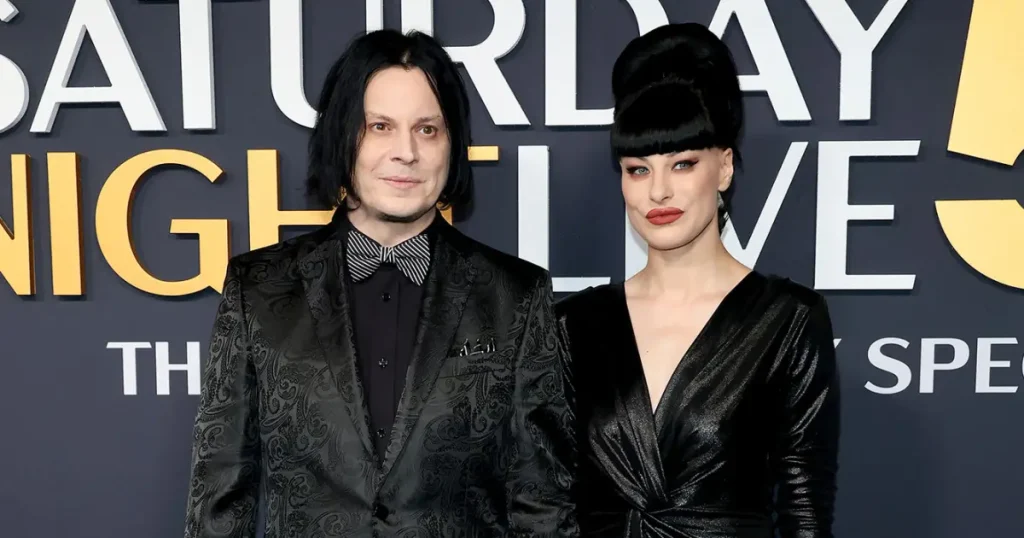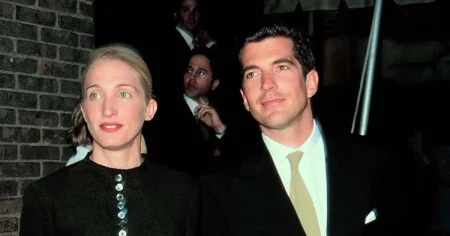Jack White: The Evolution of a Rock Icon
In the annals of modern rock music, few figures stand as distinctively as Jack White. From humble beginnings in Detroit to becoming one of the most influential guitarists of his generation, White’s journey has been marked by artistic innovation, personal reinvention, and a steadfast dedication to authentic musicianship. His career, spanning over two decades, reveals not just a talented musician, but a complex individual whose personal relationships have often intertwined with his artistic expression.
Jack White’s story begins with The White Stripes, the groundbreaking duo he formed in 1997 with his then-wife, Meg White. What made this partnership particularly intriguing was their initial public presentation as siblings rather than spouses. This deliberate misdirection wasn’t merely a publicity stunt but reflected Jack’s desire to keep the focus squarely on their music. As he later explained to Rolling Stone, “When you see a band that is two pieces, husband and wife, boyfriend and girlfriend, you think, ‘Oh, I see…'” The sibling narrative, in his view, redirected attention from potential relationship drama to their artistic output. Even after their 2000 divorce became public knowledge, the pair continued their musical collaboration for years, producing some of the most distinctive and influential rock music of the early 2000s. Their professional relationship outlasted their marriage by over a decade, with The White Stripes officially disbanding in 2011 after releasing six acclaimed albums. Though their communication reportedly dwindled in later years, Jack’s public birthday wishes to Meg when she turned 50 in 2024 suggested an enduring respect for her contribution to their shared legacy, writing that “there’s only one of you Meggo, they broke the mold. You’re still inspiring people, including me.”
As The White Stripes rose to prominence, Jack’s personal life began intersecting with his professional world in new ways. In 2003, while working on the film Cold Mountain, he met actress Renée Zellweger. Their relationship flourished against the backdrop of Jack’s expanding artistic horizons—he not only played a minor role in the film but also contributed several songs to its soundtrack, while Zellweger went on to win an Oscar for her performance. Their romance lasted approximately eighteen months before ending in September 2004. Though brief, this relationship coincided with Jack’s transition from purely musical endeavors to broader creative pursuits, highlighting his growing versatility as an artist during a pivotal period in his career.
Following his split from Zellweger, Jack’s life took another significant turn when he met British supermodel Karen Elson on the set of The White Stripes’ music video for “Blue Orchid” in 2005. Their connection was immediate and intense—they married just one month later in a ceremony as unconventional as Jack himself, exchanging vows in a canoe on the Amazon River with a shaman officiating and Meg White serving as maid of honor. This union produced two children, daughter Scarlett in 2006 and son Henry in 2007, and also yielded creative collaboration when Jack produced Elson’s debut album, The Ghost Who Walks, releasing it on his own Third Man label in 2010. The couple’s approach to their 2011 separation proved equally unorthodox, as they announced a “divorce party” to “reaffirm our friendship and celebrate the past and future.” However, the amicable façade gave way to more complicated realities when, in 2013, Elson obtained a temporary restraining order against Jack amid custody disputes, though they ultimately finalized their divorce later that year. Time seemed to heal these wounds, as evidenced by their joint appearance with daughter Scarlett in a 2025 TikTok video during Paris Fashion Week, suggesting a hard-won co-parenting harmony.
The most recent chapter in Jack White’s personal story began in 2009, though in a manner consistent with his career-long blending of the professional and the personal. He first encountered musician Olivia Jean when she left her demo CD at a concert by his band The Dead Weather. Impressed by her talent, Jack invited her to Nashville to record, which led to the formation of her band The Black Belles and the release of their self-titled album on Third Man Records in 2011. While their relationship was initially professional, with Jack serving as producer and label head, it evolved into a romantic connection around 2014, following The Black Belles’ disbandment and Jean’s transition to solo work. Their partnership culminated in a moment that perfectly encapsulated Jack’s flair for the theatrical—during a concert at Detroit’s Masonic Temple Theatre in April 2022, he proposed to Jean mid-performance as they duetted on the White Stripes classic “Hotel Yorba.” In a move that surprised the audience, they didn’t wait to celebrate their commitment, instead marrying during the show’s encore with Third Man co-founder Ben Swank officiating the impromptu ceremony.
Throughout these relationships, Jack White has remained true to his artistic vision while continuously evolving. From perpetuating the sibling myth with Meg to his dramatic on-stage wedding to Olivia Jean, his personal life has often reflected the same boldness and unconventionality that characterizes his music. What emerges from this tapestry of relationships is the portrait of a man whose dedication to authenticity extends beyond his art to his very approach to life. Though his personal journey has included its share of complexity and controversy, Jack White has maintained his position as one of rock music’s most distinctive voices—both literally and figuratively. His induction into the Rock & Roll Hall of Fame in 2025 cemented his legacy not just as a guitarist or songwriter, but as an artist whose willingness to blur lines between personal mythology and musical innovation has made him an enduring figure in contemporary music. Through marriages, divorces, creative partnerships, and public personas, Jack White remains, above all, an original.














